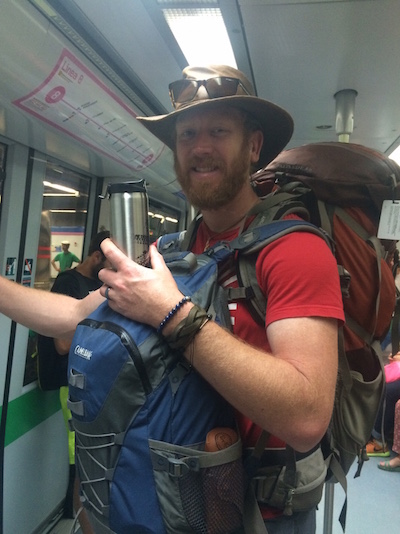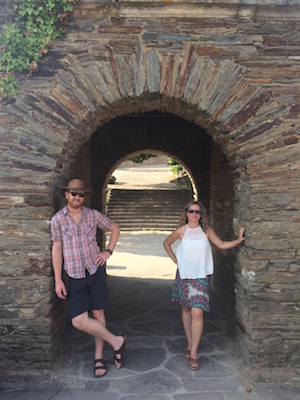My story is one familiar to many in our community… but with a twist. Familial adenomatous polyposis (FAP) started in my family when my grandfather was diagnosed with terminal colon cancer at the age of 36. Three of his six children, including my father, were later found to have FAP.
My mom suspected I had FAP as a toddler, although I wasn’t ‘officially’ diagnosed until I was 15. The summer before my junior year of high school, I underwent a colectomy (removal of the colon) with creation of a j-pouch (a surgically created reservoir that takes the place of the colon). For the next twenty years, life was pretty awesome. I received a PhD in chemistry at Auburn University, studied the chemistry of plutonium at Berkeley Lab, backpacked in northern California, and globe trotted with my (now) wife, Shawnie.
I was thrown a curve ball in 2011, though. A year after my dad died, and nearly the same age his dad passed from cancer, I became severely vitamin B12 and iron-deficient and had a critically low blood count. After months of increasingly invasive tests offered no answers, my mortality became a common topic of discussion. I began to fear that I would widow Shawnie within a year of our marriage.
During this time, my research efforts focused on finding the cause and cure of my illness. But all I unearthed was the unfortunate truth that no organization existed to support this community and very little patient-friendly information was available to families, like mine, with FAP.
My journey took a sharp positive turn in March of 2012 when I finally came under the care of an expert care team at the University of Illinois. For the first time, I could relax and trust that my medical team could care for me. Ulcers were eventually identified as the source of my bleeding, which Shawnie and I were able to remedy through dietary changes.
While my experience only lasted about six months, it gave me an insider's look at many of the difficulties people with hereditary colon cancer syndromes face. As I recovered, a vision grew of how I could make real change in this community. In June, I left my career as a research chemist to start the Hereditary Colon Cancer Foundation. We develop patient-friendly educational resources and healthy social networking opportunities for families. Additionally, I work alongside brilliant medical professionals to improve the quality of care for families around the world.
Living with a hereditary syndrome can be incredibly difficult at times. Being diagnosed early led to a quality of life that I might not have had without the prophylactic (preventive) surgery. But today, I consider myself the luckiest man I know - I have the good fortune of combining my life experiences with my science background to positively affect the lives of families in the hereditary colon cancer community.





